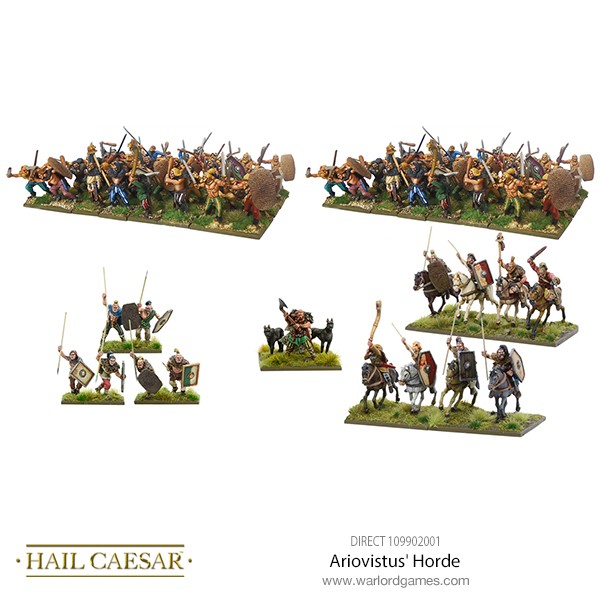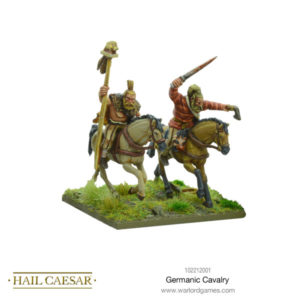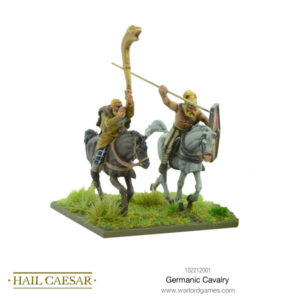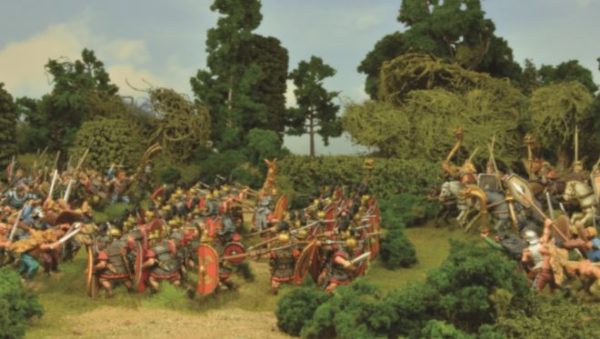To Roman soldiers looking across the Rhine into the dark, forbidding Walds of Germania, they were staring at the dividing line between civilisation and wild barbarism. Gazing back at them was an implacable, fearsome foe…
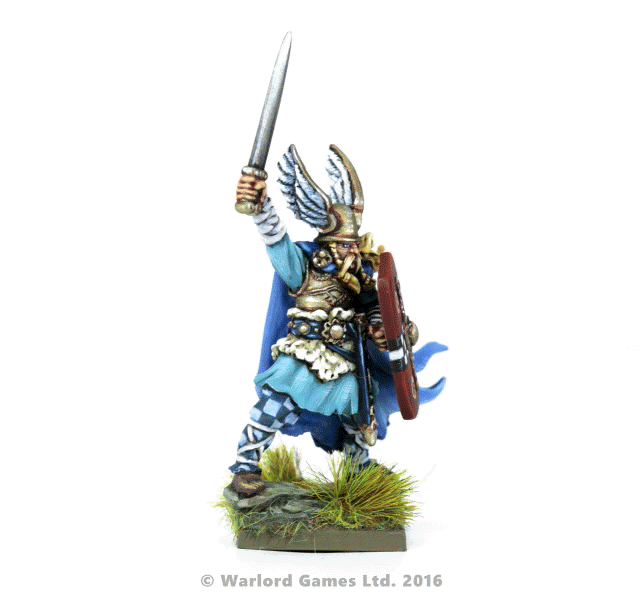
Vercingetorix: Celtic Chieftain
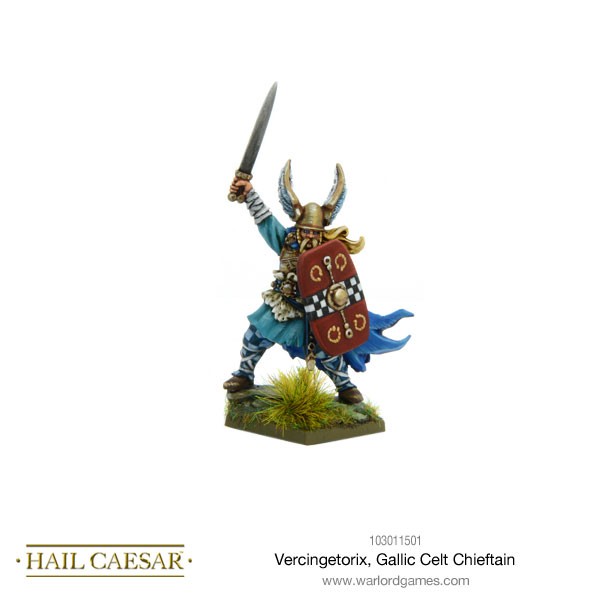
A politician, war leader and chieftain of the Arverni, at the battle of Gergovia Vercingetorix led a decisive win against the much feared ranks of the Roman Legions, forcing Caesar to withdraw from the field. Astute and cunning, he formed alliances with several Gallic tribes. But as with all many great endeavours, pettiness and envy opened gaps in the Gallic confederacy – gaps Caesar was well equipped to exploit. The turning point at Alesia was a master class in Roman military tactics and engineering. It was written even Vercingetorix’s defeat was as magnificent as his few victories, mounted upon his war horse and divesting himself of his panoply before his conqueror. He died of strangulation in Rome’s notorious subterranean prison!
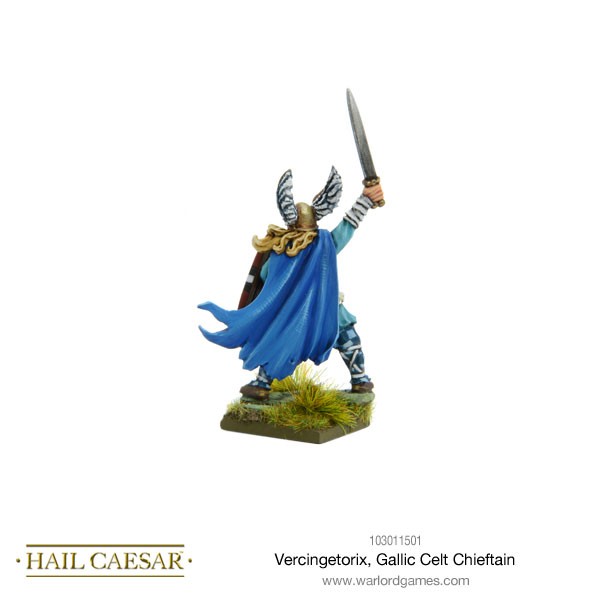
Ariovistus: Germanic chieftain
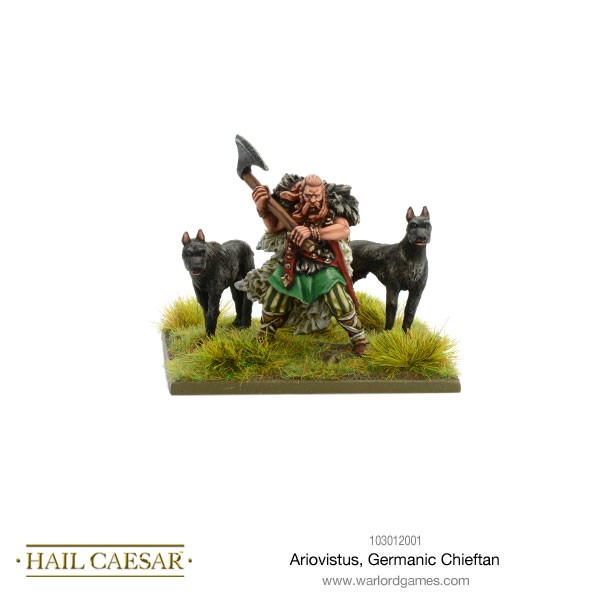
Leader of the Suebi, Ariovistus led a confederation of Germanic tribes to Gaul aiding allied tribes of the Arverni against the Aedui. Their success was upturned by the arrival of Julius Caesar and the battle of Vosges. All the detail we have comes from Caesar’s Rex Germanorum. At one point Ariovistus was seen by the Roman senate as friend, but increasing migrations from across the Rhine caused consternation amongst Rome and her Gaulish allies. Ariovistus refused all demands to quell the tide of settlers and ridiculed Rome, even inviting Caesar to attack – an offer the power hungry consul could not refuse. In the aftermath of the battle the former war leader fled back across the Rhine and into political obscurity – at least in the eyes of Rome.
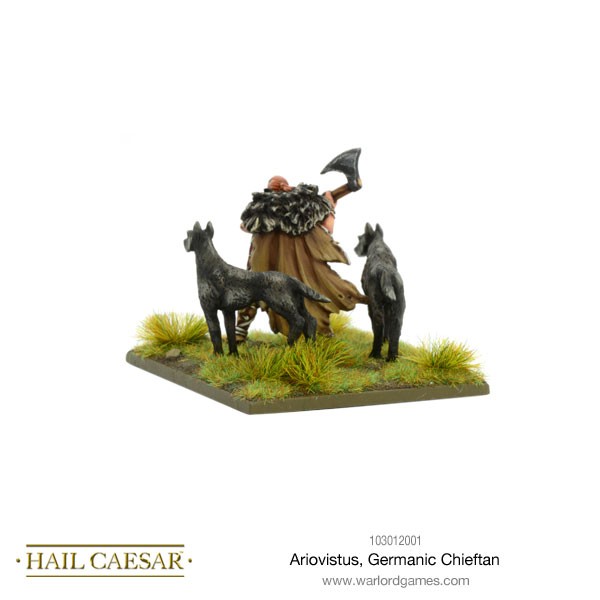
Germanic Cavalry
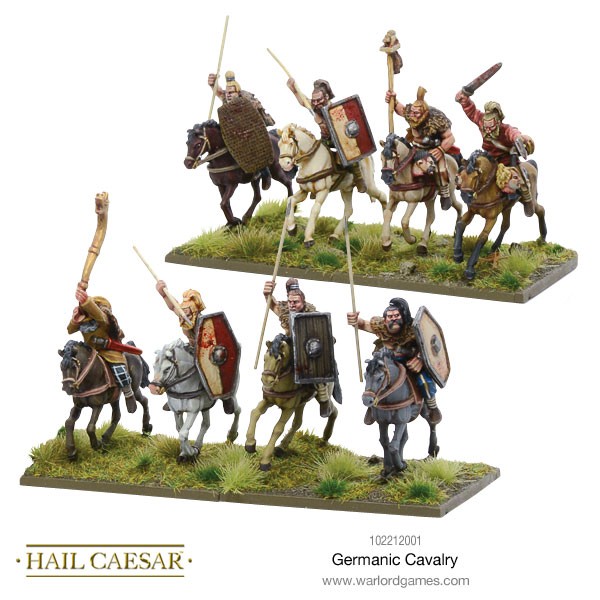
The Germans were notoriously fierce and tough, as Tacitus tells us, contrasting the hardy barbarian warriors with the degenerate sophisticates of the civilised world. Even if he was laying it on a bit thick for dramatic effect, we can’t doubt that the Germans were a frightening lot. Even the Gauls, no push-overs themselves, suffered from their endless raids and periodic invasions. No doubt the Gauls soon saw the advantages of belonging to the Roman Empire when it came to effective border control. The Germans mostly fought as infantry, but a core of warriors – probably an aristocratic elite – fought mounted.
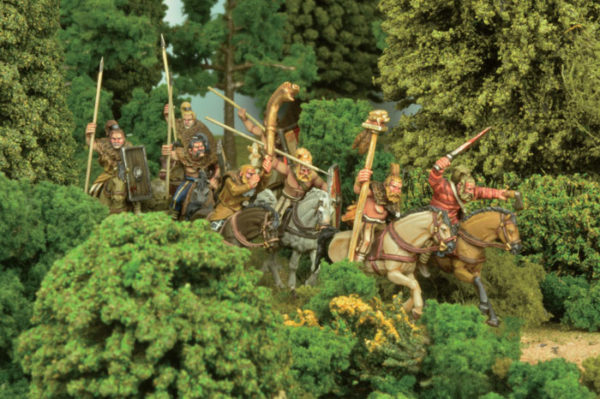
German horses were reckoned as tough and wild as their riders, and German cavalry would usually get the better of a fight against other mounted warriors. They were so much in demand that Roman mounted bodyguards were often formed of Germans. Like most cavalry of the time they usually fought with a mix of spears that they could thrust or throw, and lighter javelins primarily used as missile weapons. A shield would complete the armament of many. Early Germans did not always carry swords, whilst armour and even helmets would be rare except amongst the wealthiest warriors and chieftains.
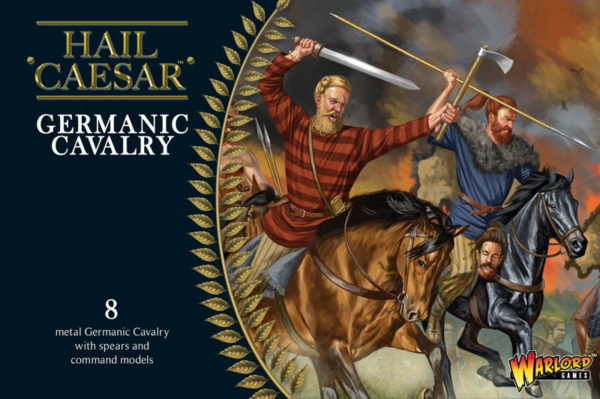
Germanic skirmishers with javelins
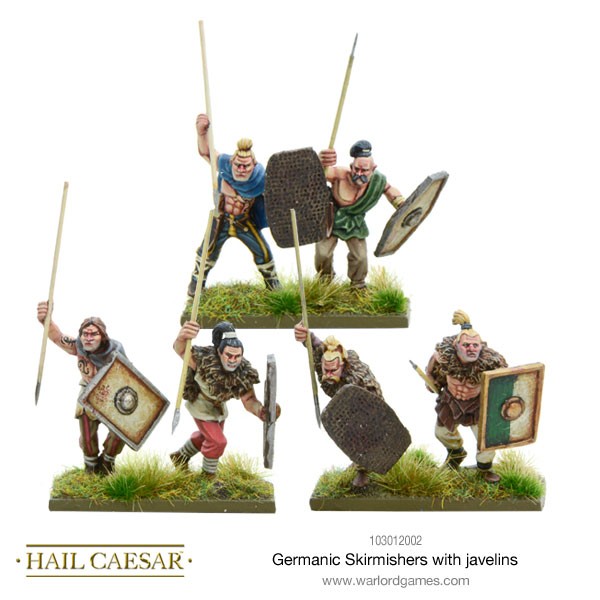
Ariovistus’ Horde
If you’re looking to start your Germanic Tribe, then look no further – we’ve put together a handy bundle, containing the core components of a formidable force – including a whole heap of the brand new items – lead by none other than Ariovistus!
- Ariovistus, Germanic Chieftan
- 2 boxes of Tribesmen of Germania (giving a total of 86 men!)
- 1 box of Germanic Cavalry
- 1 blister of Germanic Skirmishers with javelins
All of this with a whopping discount thrown-in, allowing you to pick-up a starter force (or a cracking addition to your existing force!) at a great price, in next-to-no-time!
